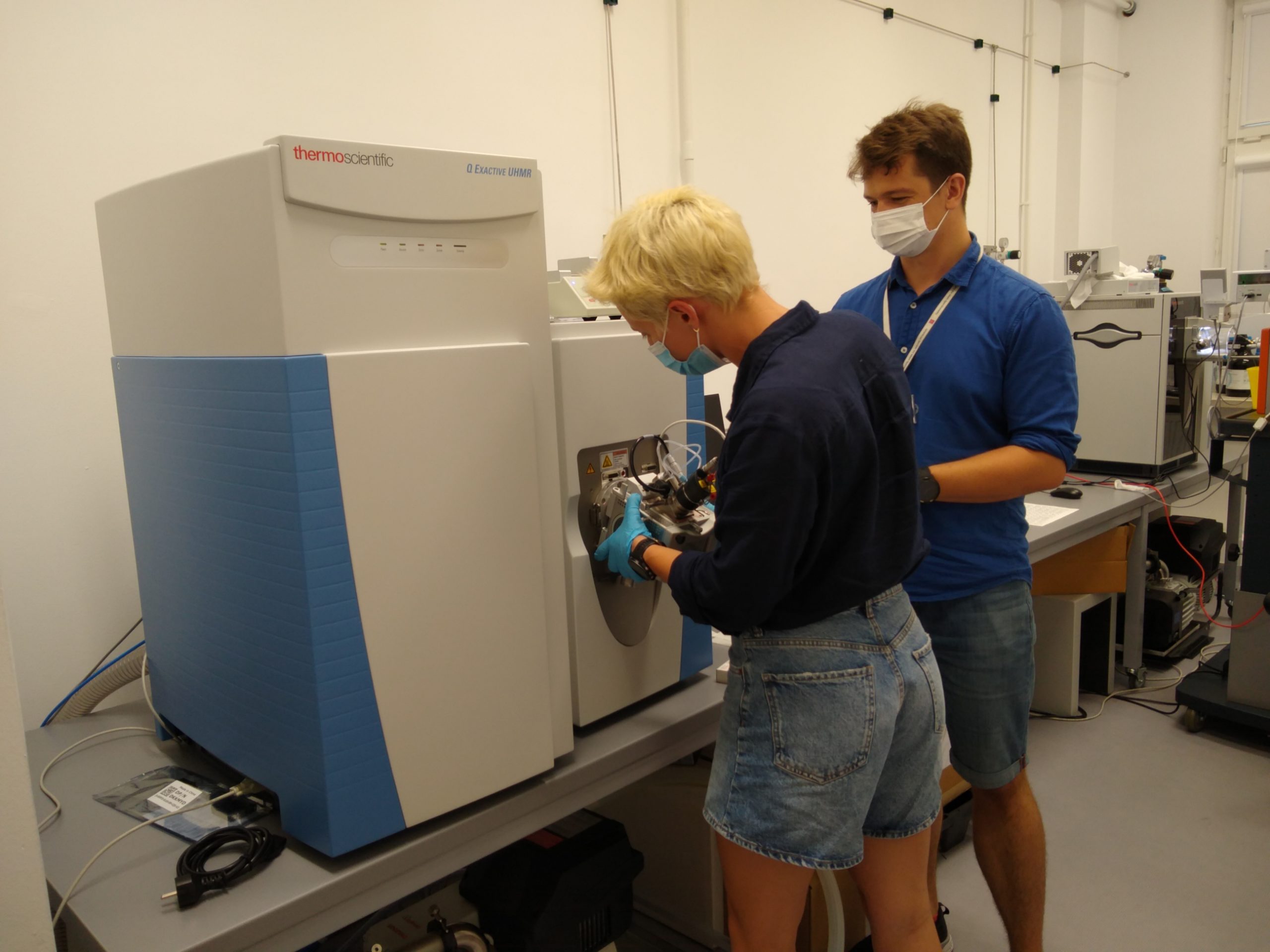New mass spectrometers in IBB
We are pleased to announce that Laboratories led by Prof. Michał Dadlez have expanded their infrastructure with new spectrometers. New instruments combined with the expertise of our specialists will enable to conduct proteomic, structural and metabolomic research at the highest quality level. The acquisition of the equipment was possible due to the efforts of Prof. Michał Dadlez, his team members, and the support of our Institute and Ministry of Education and Science. We invite you to learn about the new spectrometers’ possibilities.
Global and targeted proteomic experiments. Laboratory of Mass Spectrometry is happy to announce that the new proteomic platform has started its operation and proved its outstanding performance. It consists of a revolutionary liquid chromatography (LC) system Evosep One coupled to equally groundbreaking new generation mass spectrometer Exploris 480 from Thermo Scientific (The Life Sciences Industry Gold award 2020 http://www.lifescienceindustryawards.com/protein-analysis/). According to our knowledge there are just few dozens of such systems around the world. Due to its increased sensitivity, we will be able to extract more information from less material, an important feature for instance in the case of PTM analysis from small amount of sample, or immunoprecipitate analysis. The unprecedented scanning speed of Exploris 480 shortens analysis time. Without losing information we will be able to process at least 5 times more samples per day. There will be no queues in the foreseeable future, commissioned samples will not be waiting in a freezer, as a typical TMT labelling experiment with prefractionation into 30 fractions will require one day on the instrument to be processed. Additional FAIMS Ion Mobility separation module reduces chemical noise and matrix interference, allowing to increase the number of identified peptides and robustness of developed proteomic assays, which might be particularly beneficial for clinical samples characterized by a wide dynamic range. Innovative analytical methods, like BoxCar acquisition for clinical samples and TMT Pro 16-plex will be introduced on a new system, expanding the spectrum of experimental possibilities. Older procedures, like TMT 10-plex, will benefit from algorithmic assistance implemented in software for Exploris instrument (TurboTMT and Precursor Fit algorithms). Data Independent Acquisition (DIA), a powerful and sensitive quantitative method, suitable for long series of samples, is ready to be used in collaborative projects, making full use of unparalleled qualities of new instruments. Targeted quantitation (PRM) of proteins will also be carried out with higher sensitivity due to increased frequency of the peak amplitude sampling and access to SureQuant protocol which enables analysis of hundreds of peptides in just one run. With the new system operating in our Lab the quality of results obtained in IBB, but serving the whole community, will be truly competitive with the best proteomic labs around the world.
 Structural mass spectrometry. Courtesy of Thermo company we obtained a one-year free trial opportunity to work on Ultra High Mass Range Orbitrap mass spectrometer, which is just being installed in our Lab. The instrument is dedicated to native MS, i.e. mass analyses of large complexes of biomolecules, with practically no mass-limit, also when non-covalently stabilised, highly dynamic or heterogeneous, and suitable for demanding samples, for instance lipid-embedded membrane protein complexes. This provides information on their homo/heterogeneity, PTM identification and stoichiometry, but also, due to the ability for controlled decomposition of the complex in the spectrometer, on the mutual stability of the interaction of different complex components, providing insight into peripheral complex participants and its core components and revealing details of the topology of protein assemblies. This is nowadays a routine companion for more classic structural studies of biomolecular machines, complementing more detailed characterisation by cryo-EM, X-ray or NMR, enabling also quality control for sample preparation preceding further structural studies.
Structural mass spectrometry. Courtesy of Thermo company we obtained a one-year free trial opportunity to work on Ultra High Mass Range Orbitrap mass spectrometer, which is just being installed in our Lab. The instrument is dedicated to native MS, i.e. mass analyses of large complexes of biomolecules, with practically no mass-limit, also when non-covalently stabilised, highly dynamic or heterogeneous, and suitable for demanding samples, for instance lipid-embedded membrane protein complexes. This provides information on their homo/heterogeneity, PTM identification and stoichiometry, but also, due to the ability for controlled decomposition of the complex in the spectrometer, on the mutual stability of the interaction of different complex components, providing insight into peripheral complex participants and its core components and revealing details of the topology of protein assemblies. This is nowadays a routine companion for more classic structural studies of biomolecular machines, complementing more detailed characterisation by cryo-EM, X-ray or NMR, enabling also quality control for sample preparation preceding further structural studies.
Metabolomics. The recent positive decision of the Ministry of Education and Science granting new funds for MS instrumentation will allow to expand the Lab portfolio also for metabolomics analyses. The new instrument will enable global metabolomics i.e. analysis of the whole metabolome, in other words a small molecule composition of samples of interest, complementing global proteomics when necessary. It will also allow to increase the sensitivity of small molecule quantitation.


